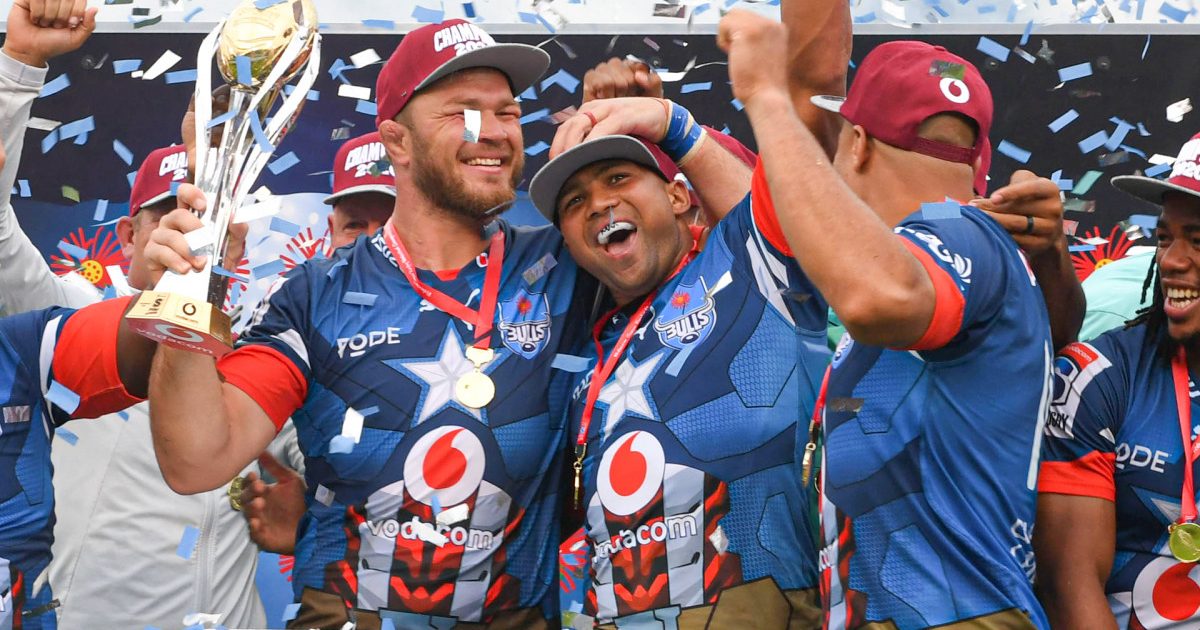'Out of 80 minutes you see 25 minutes of rugby and that's a problem': Former Springbok coach blasts standard of South African domestic play

Whilst the Springboks haven’t played a game since the World Cup final, South African rugby fans have had to settle for Super Rugby unlocked and the Currie Cup as they await the return of their national side.
Although the return of domestic rugby hasn’t impressed former Springboks coach Nick Mallet, who has become concerned at the direction of the game at the domestic level following the Springboks’ World Cup win.
Speaking on SuperSport’s show Final Whistle at the conclusion of the Currie Cup round-robin, Mallett wasn’t impressed with the standard of rugby particularly after seeing the New Zealand teams play in Super Rugby Aotearoa in 2020.
“It’s difficult not to be a little bit negative on the performances of our teams quite frankly,’ Mallett said.
“If you compare it with the way New Zealand cracked in with their Aotearoa competition, with teams really embracing the quick-ruck ball and ball-in-hand style they were reasonably high-scoring games, but the defences were excellent and their attacks were great. It was rugby that was worth watching.”
Mallet derided the low-risk style of play that has crept into the South African game, explaining that rugby is in the business of entertainment and the current direction of the game is heading the wrong way.
“When we started there was obviously issues with our fitness and conditioning. There were a lot of error-ridden games early on.
“Then it appeared that every single team that got into a tight situation just resorted to World Cup-final tactics which basically means driving mauls, pushing scrums for penalties and kicking an up-and-under from No 9 or 10 the entire game.’
“Sadly it just doesn’t make for good viewing.”
He highlighted South Africa’s win over Wales in the World Cup as an example of torrid spectacle even though South Africa got the result they were after.
The match was widely criticised at the time, which was played the day after England and New Zealand’s thrilling semi-final.
“If you’re waiting for other people to make a mistake … it’s like watching us playing Wales in the semifinal of the 2019 World Cup which was not a good spectacle, it was great that South Africa won, but it wasn’t a good rugby spectacle for viewers.”
“People get entertained by watching tries being scored through good passing, good lines of running, timing and good stepping.”
The former Springbok coach highlighted the value of an exciting player like Cheslin Kolbe, who puts bums on seats but had to leave South Africa to play in France. Once at Toulouse, Kolbe’s talent was regularly on show in Europe leading to being capped by the Springboks.
“To see a Cheslin Kolbe score a try is worth sitting there for an hour and a half in an afternoon. But if I’ve got to watch up-and-unders and driving mauls all day… and collapsed scrums and penalties… I’m not excited by that product. So, I think we’ve got a few issues to talk through.”
On the same show’s panel was former Lions and Springbok assistant coach Swys de Bruin, who built an attacking powerhouse Super Rugby side at the Lions. The side made three straight finals on the back of high-scoring attacking play where the side frequently ran from anywhere.
De Bruin lamented the predictablity of the current approach at set-piece, which is to use resets to ultimately draw a penalty.
“It’s almost like a storybook now… I can see there’s a scrum that will reset and reset again, then the advantage will come, then the next chapter is the penalty,” he said.
“From there the maul starts. Before the maul there is a little meeting with forwards that eats up more time.”
The Lions coach highlighted the trend in South Africa for ball-in-play time is on the way down, with more and more set-pieces eating away at the game clock.
“In Super Rugby in 2017 and 2018 we had 35 minutes of continuing play on average. We aimed for 40, if we got 35 or 36 we were happy. I spoke to one of the analysts in the Currie Cup and there hitting 24, 25, 26… so out of 80 minutes you see 25 minutes of rugby and that’s a problem.”





























